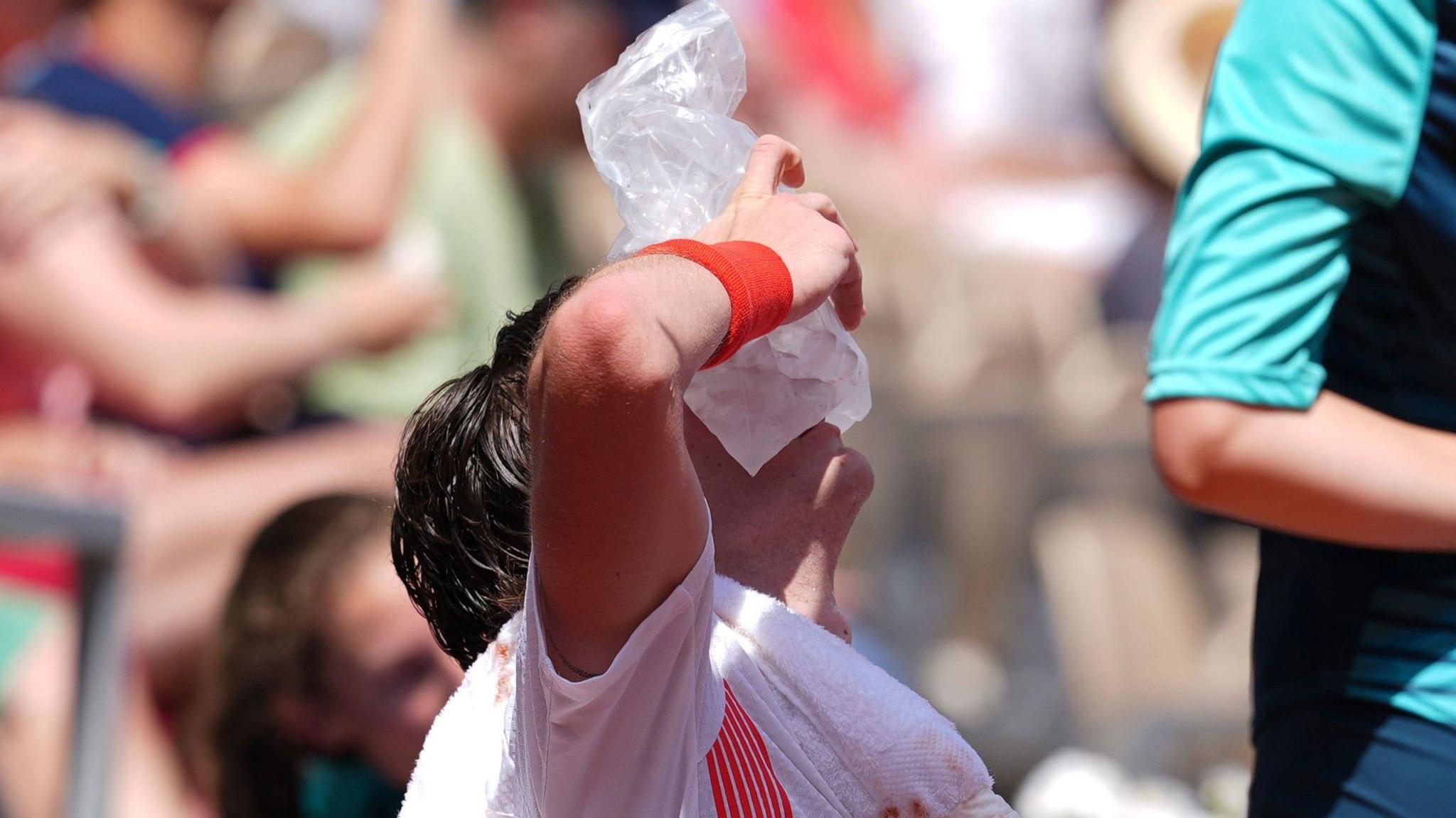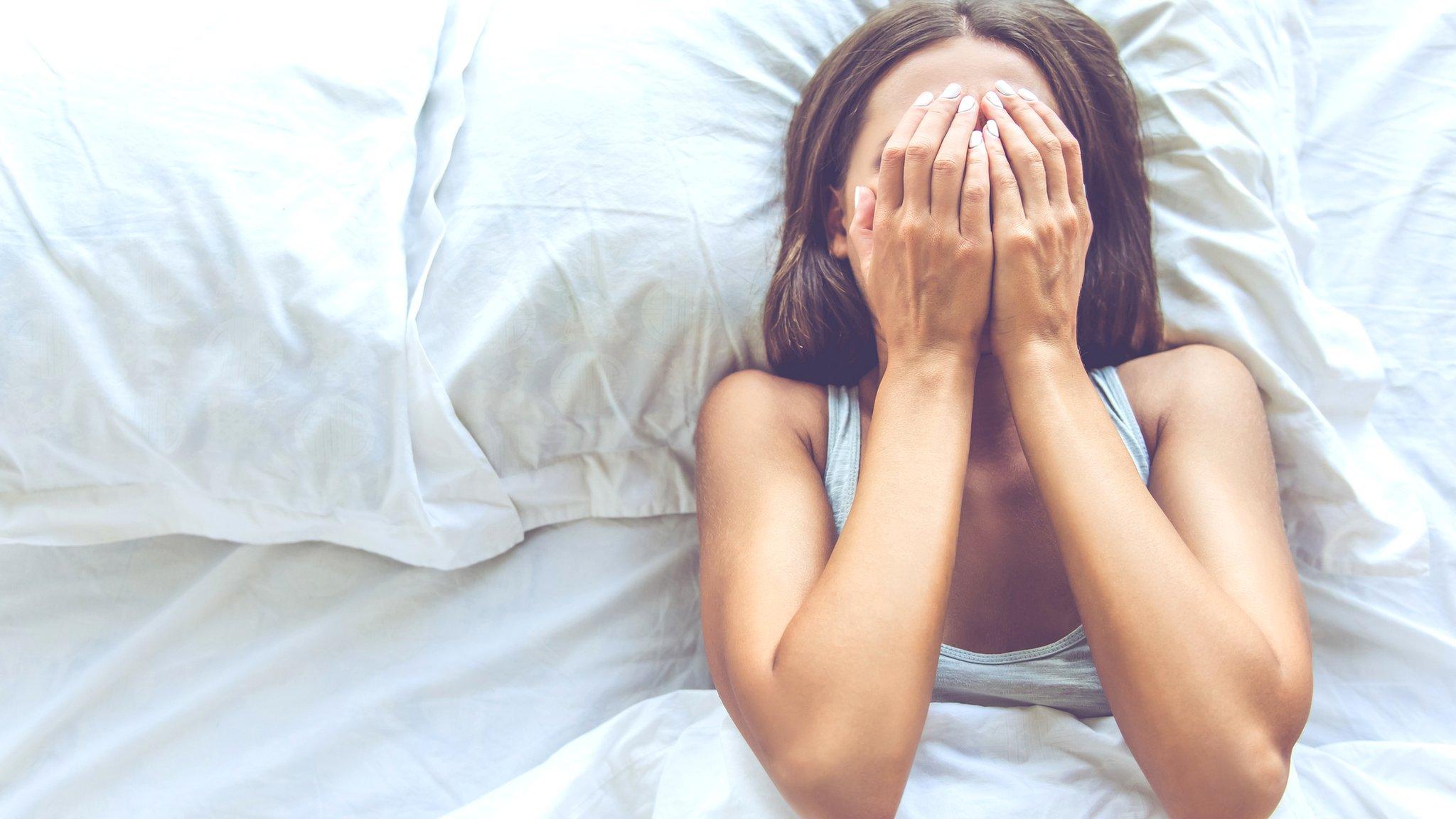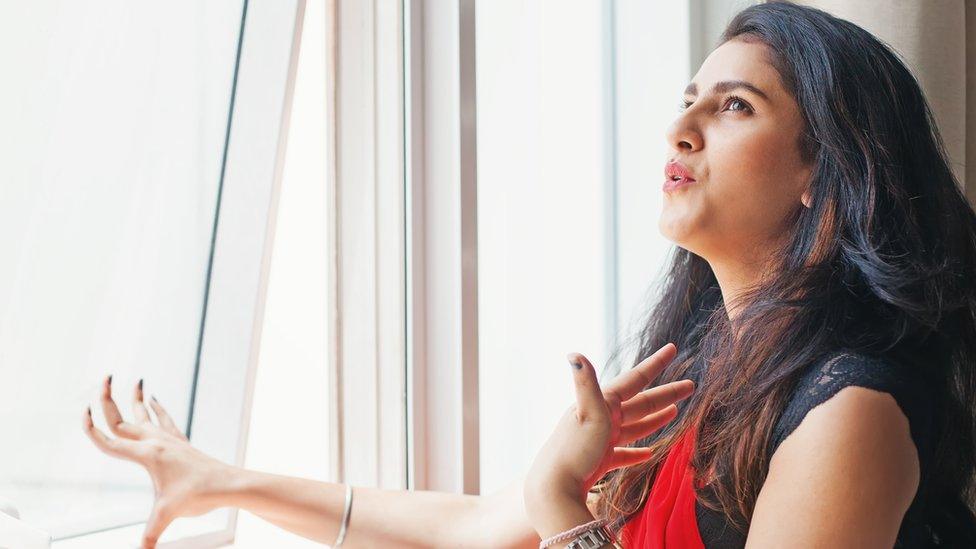Be at your best in the heat: Olympians' five tips
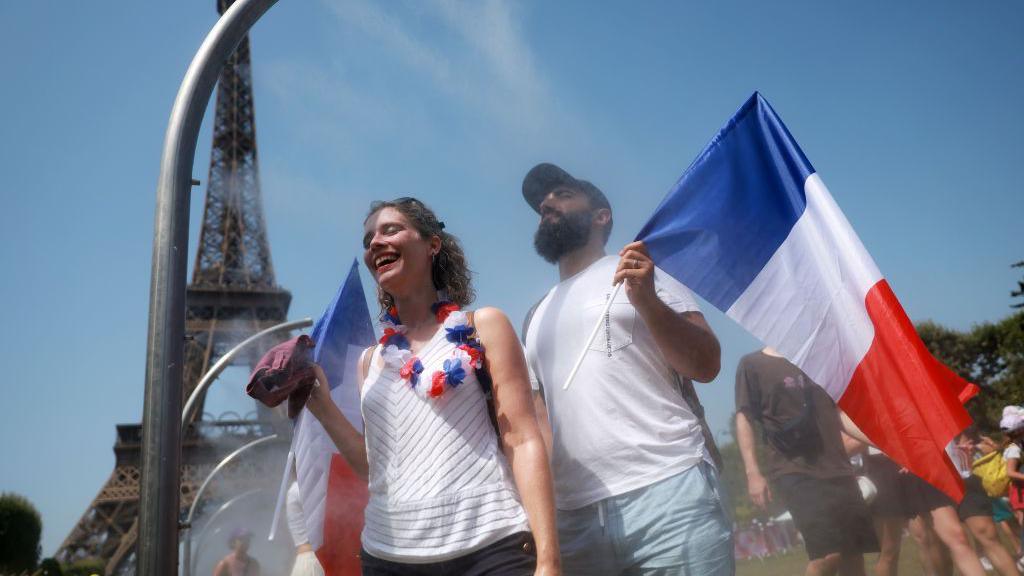
- Published
Olympic athletes at the Games in Paris have spent years preparing for this year’s contest – and do not want to let a heatwave scupper their chances of medal success.
Temperatures reached about 35C (95F) on Tuesday in the French capital, where a yellow heat alert was in place.
Ahead of the Games, researchers warned about the risk of extreme temperatures to the health of competitors and spectators, drawing a link with climate change.
As temperatures soar in various French cities hosting the Games - and the UK recording its hottest day of the year - here are some everyday tips from Olympians in Paris for staying at your best in the heat.
Stay hydrated
All the athletes the BBC spoke to stressed the importance of drinking plenty of water to keep the body replenished when it is losing lots of fluid through sweating.
Daniel Bachmann Andersen, a 34-year-old competitor from Denmark, estimated that he glugged about 10 litres ahead of his appearance in the equestrian dressage contest on Tuesday.
“It’s a lot of bottles," he joked. “I had to go to the toilet quite a lot of times”.
He recognised there were particular challenges in his discipline because equestrian events mandate heavy dress, including a jacket and helmet. He also needed to take care of his horse, Vayron.
The Dane said his trick of repeatedly splashing himself and Vayron with water also worked, though he recognised this was not always possible in public life.
“They were all laughing at me because I was completely soaked,” he recalled.
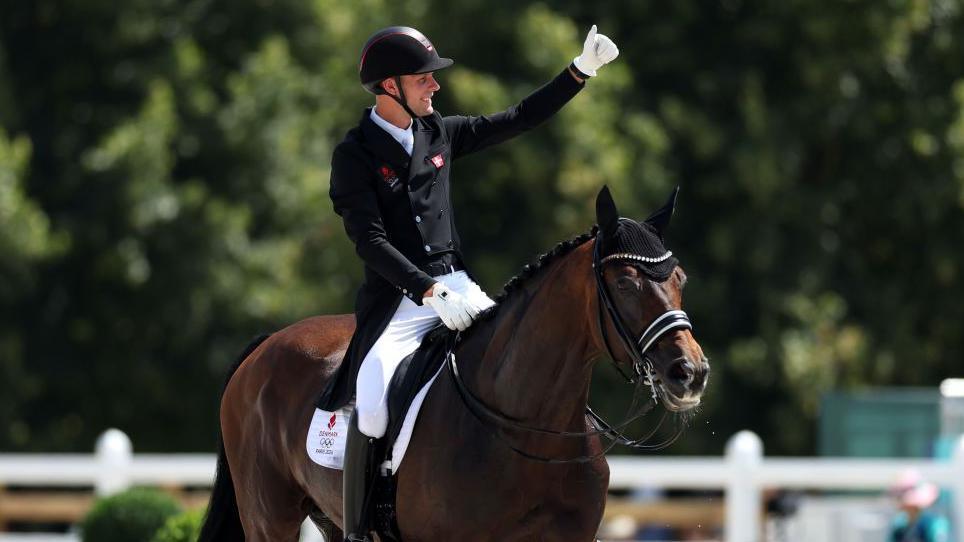
Daniel Bachmann Andersen, pictured competing in Paris on Tuesday, won a gold medal at the world championships in 2022
Keep your bedroom cool
The athletes also agreed that a decent night’s sleep was vital for starting the day at their best.
Jakob Soderqvist, a 21-year-old road cyclist from Sweden, said he was wary of using air-conditioning at night, saying he had concerns about air quality.
But he recommended doing everything possible to cool down the bedroom during the daytime: using AC or a fan, keeping curtains closed and closing off the room from the rest of the home.
As part of this system, he suggested keeping bedroom windows closed at night, because otherwise “you probably only heat the room temperature up”.
Soderqvist also recommended a gap of at least three hours between your final meal and bedtime, pointing out the body produced heat as it digested food.
And he advocated sleeping with an eye mask, adding: "Sunlight is your biggest enemy."
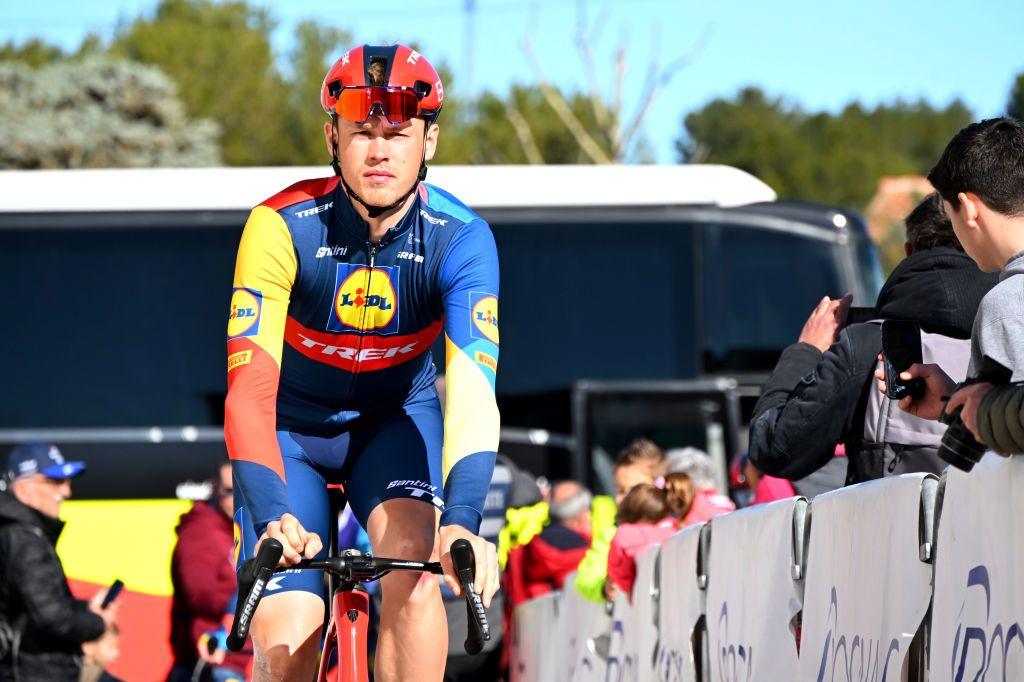
Jakob Soderqvist will take part in the men's cycling road race on 3 August
Protect your skin
This might sound counterintuitive but French volleyball star Alexia Richard, 28, says it is a good idea to wear longer clothes when the sun is at its most intense.
This is the best method of protection from harmful ultraviolet rays that are associated with skin damage and health risks.
It is not uncommon to see people playing her sport in longer outfits nowadays, said Richard, after previous rules mandating bikini-wearing were scrapped in the women’s competition.
For any skin that cannot be covered, the key thing is to use “the best sun cream possible”, she said.
If you plan to head to the beach this summer, remember to cover your feet, too: Richard pointed out that hot sand was capable of causing burns – which is why Games organisers have kept the volleyball sand watered.
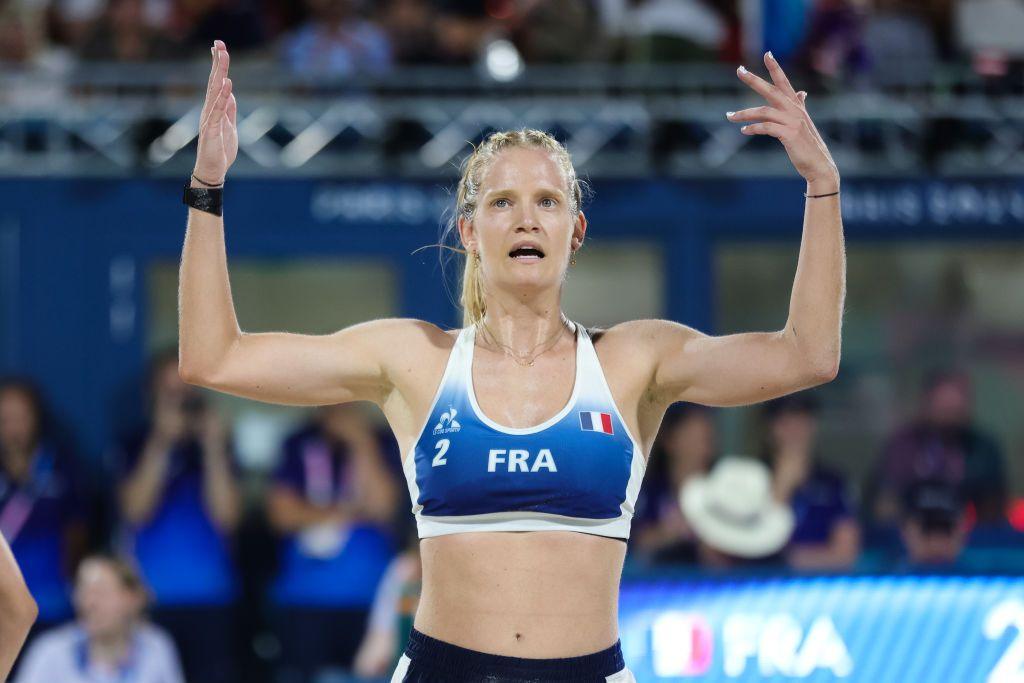
Alexia Richard is set to compete in high heats on Wednesday and Saturday
Keep eating
A heavy meal might be the last thing you want on a hot day – but the athletes recommended against deviating from your usual diet.
Soderqvist stressed that the body still needs the energy when conditions are draining.
The Swede, who will cycle for about seven hours in his race on Saturday, said he had “some 10,000-calorie days” in his training, and he would continue his intake despite the heat in Paris.
He said he had “a standard which I do not change when it’s warm”.
“It’s really important to build your energy,” agreed Richard, who won the volleyball match in which she and her partner were involved. Among her recommendations were rice, pasta and porridge.
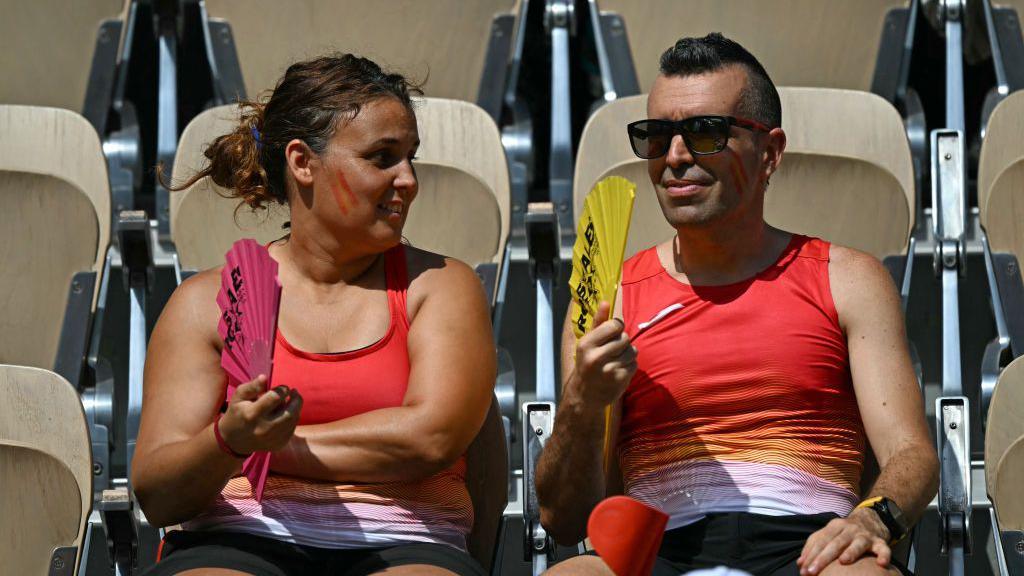
Don’t overdo it
This, too, might come as a surprise, but Andersen said he had “trained very little” since arriving in Paris.
Hard exercises in the intense heat would have taken the energy out of his horse, he said.
What little training he had done had taken place in a warm tent, in order to simulate the competitions of a baking-hot competition day.
Despite the conditions, he set a personal best on Tuesday and will now compete in the final.
The key message? Andersen said it was important to simply accept the heat and to do what you can to acclimatise to it.
Related topics
- Attribution
- Published30 July 2024
